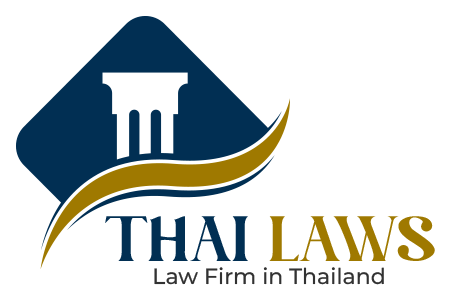Private investigation in Thailand operate in a space defined not only by market demand—such as surveillance, background checks, and asset tracing—but also by strict legal boundaries, privacy laws, and ethical limitations. While private investigation is not governed by a single, standalone statute, its practice is shaped by various laws including the Criminal Code, Civil and Commercial Code, Personal Data Protection Act (PDPA), and laws on defamation and trespassing.
This article presents an in-depth analysis of private investigation in Thailand, examining legal status, regulatory oversight, methods permitted and prohibited under Thai law, and typical engagement scenarios involving both Thai and foreign clients.
II. Legal Status and Recognition
A. Licensing and Business Registration
There is no formal “private investigator license” in Thailand issued by a central government body. However, any individual or entity offering investigation services must:
-
Be registered as a legal business (typically as a limited company under the Civil and Commercial Code).
-
Hold a commercial registration certificate from the Department of Business Development (DBD).
-
Use a business activity description such as “security and surveillance services,” “background verification,” or “consulting.”
Certain activities (e.g., surveillance using electronic means) may also fall under telecommunications law or cybercrime law.
B. Professional Scope
PI firms often employ:
-
Retired police or military officers
-
Legal consultants
-
Technology experts (e.g., in digital forensics)
These professionals may legally gather information, provided they do not violate personal privacy, trespass, defame, or interfere with official investigations.
III. Applicable Laws and Legal Limits
A. Thai Criminal Code
| Offense | Section | Prohibition |
|---|---|---|
| Defamation | 326–333 | Making or publishing damaging statements without proof |
| Trespass | 362–367 | Entry into a person’s property without permission |
| Secret recording | 226, 237 | Unauthorized recording of private conversations may be criminal |
| Stalking or harassment | 397 | Conduct causing annoyance or fear may result in fines or imprisonment |
B. Personal Data Protection Act (PDPA) B.E. 2562 (2019)
Under the PDPA:
-
Collecting or processing personal data (e.g., addresses, images, financial records) requires data subject consent.
-
Exceptions may apply when the data is collected for establishing legal claims, but this must be proportionate and documented.
A PI acting without lawful basis may be liable for civil damages and administrative fines under the PDPA.
C. Civil and Commercial Code
Private investigators must avoid actions that result in:
-
Wrongful acts (torts) under Section 420 (e.g., invading privacy)
-
Breach of confidence in contractual relationships
IV. Lawful Scope of Services
Private investigators in Thailand may legally offer the following services within the constraints of existing laws:
1. Surveillance
-
Visual surveillance of public areas (e.g., following a subject in public)
-
Documentation via photos or video from public viewpoints
-
Time and location logging
Limitations:
-
Cannot place hidden cameras inside private property
-
Cannot use tracking devices without consent or court order
2. Background Checks
-
Employment and education verification
-
Marital status verification (using civil records)
-
Criminal background checks (with subject consent)
-
Business registration searches via DBD
Limitations:
-
Access to criminal or financial records requires either consent or court order
-
Disclosure of personal financial information without authorization is illegal
3. Asset Tracing
-
Locating property under individual’s name via land office or vehicle registry
-
Corporate shareholding records (publicly available via DBD)
-
Litigation history (searchable at Thai court system databases)
Not Permitted:
-
Unauthorized bank account access
-
Forcing disclosure of personal documents
4. Infidelity Investigations
-
Commonly requested by spouses or family members
-
May include photography, movement logs, and third-party identification
Caution:
-
Cannot entrap, provoke, or impersonate
-
Must avoid disseminating evidence without client’s permission (risk of defamation or privacy breach)
V. Evidence Collection and Use in Court
A. Legal Admissibility
-
Evidence collected by a PI can be submitted in civil or family court, especially in divorce or custody cases.
-
To be admissible, evidence must be:
-
Lawfully obtained
-
Relevant and not fabricated
-
Supported by testimony from the investigator
-
Judges have discretion to reject evidence obtained through illegal or unethical means.
B. Affidavits and Investigator Testimony
-
PIs may be summoned as witnesses to support the authenticity of surveillance logs or other findings.
-
They may be cross-examined on methodology and source integrity.
VI. Typical Clients and Use Cases
1. Family and Marital Cases
-
Infidelity
-
Child custody disputes
-
Hidden assets in divorce proceedings
2. Business and Corporate
-
Employee background verification
-
Internal fraud investigation
-
Competitor intelligence
3. Insurance and Legal
-
Personal injury claim validation
-
Witness location and interviews
-
Asset verification for debt enforcement
4. Foreign Clients
-
Verifying a Thai partner before marriage or investment
-
Locating missing persons
-
Child abduction cases involving cross-border custody
VII. Ethical and Risk Considerations
Private investigators in Thailand operate in a legally grey zone and must balance between client interests and:
-
Privacy rights
-
Data protection laws
-
Criminal prohibitions against surveillance and defamation
Unethical investigators may offer services that include:
-
Illegal phone tapping
-
GPS tracking without consent
-
Document falsification
Clients engaging in or authorizing such activities may themselves face legal liability.
VIII. Recommendations for Engaging a PI
-
Check business registration and request licensing documents (DBD certificate)
-
Ask for a written service agreement that specifies:
-
Scope of work
-
Confidentiality terms
-
Limitations (especially regarding legality)
-
-
Do not request services that violate Thai law
-
Ensure any information obtained is used strictly for legitimate legal or personal interest
IX. Conclusion
Private investigation in Thailand is legally possible but highly regulated in terms of method, scope, and admissibility. The absence of a centralized licensing system increases the importance of working with registered firms and ethically compliant professionals. Investigative activities must not infringe upon privacy, defame others, or obtain data by illegal means.
Whether used in marital disputes, business matters, or civil litigation, private investigation services should be conducted under legal supervision, with a clear understanding of what is permitted under Thai civil, criminal, and data protection law.



